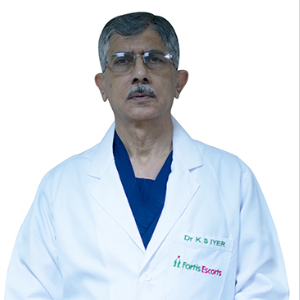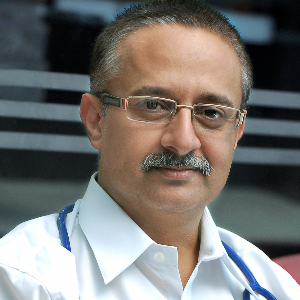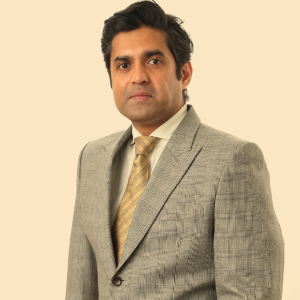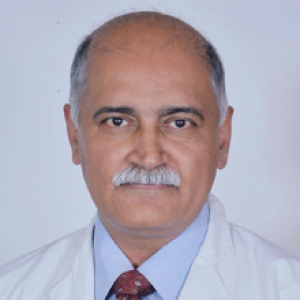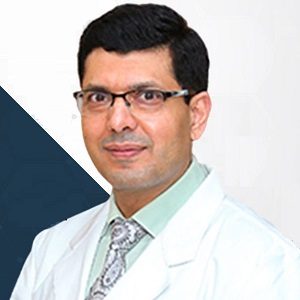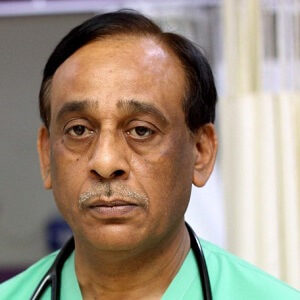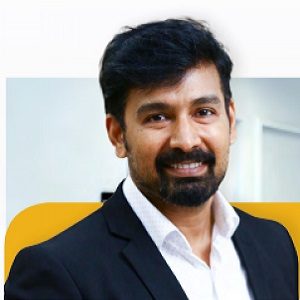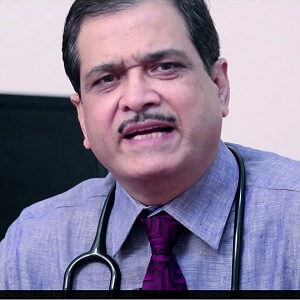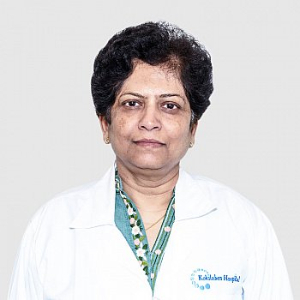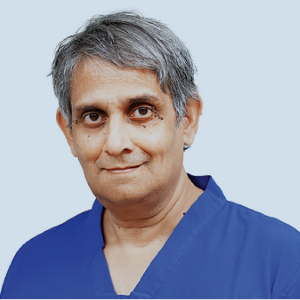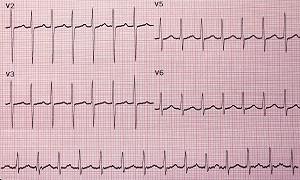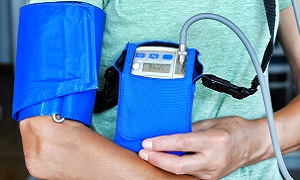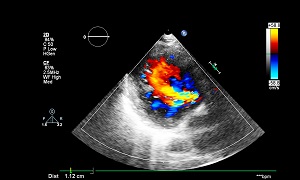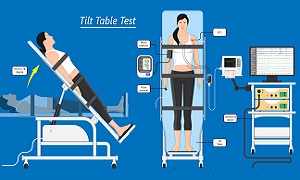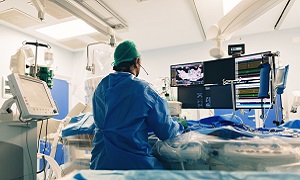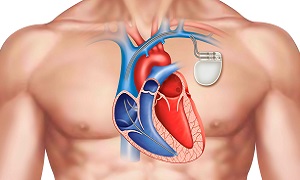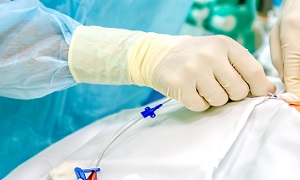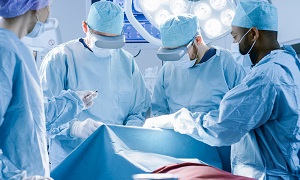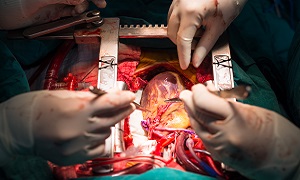Best Doctors in India for Arrhythmia Treatment
- Pediatric Cardiac Surgeon, New Delhi, India
- Over 40 years’ experience
Profile Highlights:
- Dr. Krishna Subramony Iyer is one of the best Pediatric Cardiac surgeons in India and specializes in congenital heart diseases.
- He has been practicing pediatric cardiac surgery for over 4 decades and has performed more than 10,000 surgeries through various procedures like double switch operation TAPVC repairs, Fontan and Fontan, arterial switch, and DORV.
- Dr. Iyer has been associated with Escorts Heart Institute for a long time and is responsible for establishing the first pediatric cardiac care program in North India in 1995.
- Pediatric Cardiac Surgeon, New Delhi, India
- Over 30 years’ experience
Profile Highlights:
- Dr. Rajesh Sharma is one of the most experienced and widely acclaimed Cardiothoracic and Vascular surgeons specializing in pediatric cardiac surgery in India.
- He provides treatment for both adult and pediatric heart diseases and disorders and focuses primarily on complex congenital heart diseases.
- Dr. Sharma’s expertise lies in infant and Neonatal cardiac surgery, surgery for transposition of the great arteries, Fontan circulation, and acquired heart diseases.
- His experiences encompass over 3 decades during which he has performed over 20,000 heart surgeries including congenital heart disorders as well as acquired heart defects.
- Dr. Rajesh Sharma did his fellowship training in pediatric cardiovascular surgery from premier institutes in the USA and has used his knowledge and skills to take up several complex cardiac cases and deliver excellent results.
- Along with his practice, Dr. Sharma has also been involved in teaching and training undergraduate and postgraduate students and started his career as a faculty with AIIMS, Delhi. He has also mentored cardiac surgery trainees who are now well-established surgeons in various parts of India.
- Dr. Rajesh Sharma has contributed immensely to the field of pediatric cardiac surgery in India and has various publications to his name in renowned national and international scientific journals.
- Heart & Lung transplant Surgeon, Hyderabad, India
- Over 20 years’ experience
Profile Highlights:
- Dr. Sandeep Attawar is a highly recognized Heart and Lung transplant surgeon in India who has over 2 decades of experience as a cardiac surgeon and has performed more than 10,000 cardiac surgeries on adult and pediatric patients.
- Dr. Attawar specializes in all types of surgeries for adults as well as pediatric heart patients and finds interest in heart and lung transplant surgery, congenital heart surgery, Aortic aneurysm repair, and implantation of heart failure devices.
- Cardiac Surgeon, New Delhi, India
- Over 21 years’ experience
Profile Highlights:
- Dr. Kulbhushan Singh Dagar, a pioneer and an expert in the cardiology field earned his reputation through his exceptional performance in the field of complex congenital heart defects, especially for newborns.
- With over 21 years of experience, Dr. Dagar has dedicatedly performed complex surgical procedures by implementing innovative techniques and cutting-edge technologies in his procedures and is currently considered an asset to the cardiac industry, not just nationally, but internationally too!
- Pediatric Cardiologist, New Delhi, India
- Over 26 years’ experience
Profile Highlights:
- Dr. Ashutosh Marwah is one of the best child heart specialists in India, having experience of over 26 years.
- He was the former Assistant Director of Jaypee Hospital and is now practicing at Indraprastha Apollo Hospital in New Delhi.
- Dr. Ashutosh Marwah has expertise in treating complex cardiac defects, Interventional & perioperative cardiac catheterizations, dilatation stenting, fetal echocardiography, Aortic Aneurysm, and Stent implantation.
- He has Fellowships in Pediatric Cardiology from reputed hospitals like Escorts Heart Institute, Delhi, and Royal Children’s Hospital, Melbourne, improvised his skills.
- Dr. Marwah published multiple research papers and articles in reputed medical journals of India and abroad. He is also a member of the Lions Club of Dar Es Salaam.
- Interventional Cardiologist, New Delhi, India
- Over 36 years experience
Profile Highlights:
- Dr. K K Saxena is one of the top cardiologists in India, having nearly 36 years of experience in this field.
- He is a senior consultant for interventional cardiology at Indraprastha Apollo Hospital in New Delhi.
- Dr. Saxena diagnoses and treats cardiovascular problems in kids and adults. He is specialized in balloon dilation of the mitral and pulmonary valves, the renal and peripheral arteries, and aortic coarctation.
- Dr. Saxena and his team performed several cardiac catheterizations and pacemaker implantations.
- Prior to joining Apollo hospital, Dr. K K Saxena worked at many national and international hospitals.
- He also completed research in interventional cardiology at the Royal Adelaide Hospital, Australia.
- Paediatric Cardiologist, Chennai, India
- Over 10 years’ experience
Profile Highlights:
- Dr. Muthukumaran C S is one of the finest Heart Specialists in India. He has successfully operated on more than 2500 cardiac catheterizations in children, 1000 AD closures, 250 VSD closures, and 700 PDA closures.
- The Medical practitioner has been associated with various reputed hospitals in India. Dr. Muthukumaran C S has been associated with many hospitals over the course of his illustrious and experienced career.
- Interventional Cardiologist, New Delhi, India
- Over 26 years experience
Profile Highlights:
- Dr. Rajeev Kumar Rajput is one of the best Cardiologists in India with nearly 23 years of experience. He is a clinical cardiologist engaged in diagnosing and treating cardiovascular diseases.
- Dr. Rajput is currently working as a senior consultant with Indraprastha Apollo Hospitals, New Delhi, and also offers patient care at the Heart & Gynae Clinic.
- Dr. Rajeev Kumar Rajput specializes in Angiography and Interventional Cardiology. The treatments provided involve Neonatal and Infant cardiac surgeries, Device Closure, and Valve replacement. He has expertise in Aortic Aneurysm Surgery, Vascular Surgery, Percutaneous Coronary Interventions, Endovascular Repair, Cardiac Catheterisation, Open Heart Surgery, and MV replacement.
- Dr. Rajput is credited with publishing several papers in noted medical journals.
- Pediatric Cardiologist, Mumbai, India
- Over 20 years’ experience
Profile Highlights:
- Dr. Snehal Kulkarni is a renowned pediatric cardiologist who specializes in the management and treatment of fetal cardiac diseases, non-invasive pediatric cardiology, and Adult Congenital heart diseases.
- She is an expert in Diagnostic and Interventional Cardiac Catheterization, Stent implantation, Cardiac Pathology, and Balloon dilatation.
- She has more than 2 decades of experience in pediatric cardiology and has acquired her training from prestigious institutions in USA.
- Heart Lung Transplant Surgeon, Chennai, India
- Over 40 years’ experience
Profile Highlights:
- Dr. K R Balakrishnan is a highly coveted cardiac surgeon in India and is probably one of the best heart transplant surgeons in the country.
- He has performed the largest number of heart transplants in the country including 180+ heart transplants, 23 lung transplants, and 9 heart & lung transplant procedures. He performed the first permanent artificial heart transplant in India with HeartMate II LVAD.
- Dr. K R Balakrishnan has over 40 years of experience in the field and has the expertise to perform cardiac surgeries on patients of all ages. He has performed over 16000 cardiac surgeries for various types of heart diseases and disorders till date.
Best Hospitals in India for Arrhythmia Treatment
Indraprastha Apollo Hospital, New Delhi
- City: New Delhi, India
Hospital Highlights:
- Indraprastha Apollo Hospital is a 700-bedded multispecialty hospital in the heart of the capital of India. It is a part of Apollo Hospital group, one of India’s most reputed healthcare chains. Indraprastha Apollo Hospital has been accredited by Joint Commission International, making it the first internationally accredited hospital in the country in 2005.
- There are 52 specialties in the hospital with one of the best cardiology centers in the country. The hospital is also equipped with State of the art infrastructure facilities with the largest Sleep Lab in Asia and the largest number of ICU bed facilities in India.
- The hospital also has one of the largest dialysis units in India along with a dedicated Bone Marrow Transplant unit.
- The latest and highly advanced technologies that are installed in the hospital include Da Vinci Robotic Surgery System, PET-MR, PET-CT, Cobalt-based HDR Brachytherapy, Brain Lab Navigation System, Tilting MRI, Portable CT scanner, 3 Tesla MRI, 128 Slice CT scanner, DSA Lab, Endosonography, Hyperbaric Chamber and Fibro scan.
Fortis Memorial Research Institute, Gurugram
- City: Gurugram, India
Hospital Highlights:
- Fortis Memorial Research Institute is a multi-super-specialty, quaternary care hospital with 1000 beds. The hospital comprises reputed clinicians, and international faculty and is also equipped with cutting-edge technology. The hospital is a part of Fortis Healthcare Limited, a reputed chain of private hospitals in India.
- It is a NABH-accredited hospital that is spread across 11 acres of land and has a capacity of 1000 beds. The hospital has 55 specialties and is one of the premier health care centers in the Asia Pacific region popularly known as “the Mecca of Healthcare”.
- The hospital has 260 diagnostic centers and is also equipped with the latest and advanced techniques that include 3 Telsa which is the world’s first Digital MRI technology. The hospital also has world-class Radiation Therapy techniques which have been developed by leading technology experts from Elekta and Brain Lab.
Apollo Hospital, Chennai
- City: Chennai, India
Hospital Highlights:
- Apollo Hospitals, Chennai, is one of the best hospitals for heart care in India. Over the years, Apollo has expanded all over India, as a healthcare chain.
- India’s first ‘Only Pancreas’ transplant was performed in Apollo Hospital. The hospital is known for successfully performing Asia’s first en-bloc combined heart and liver transplant, and over the years, it has attained a remarkable achievement in the global healthcare space. Around 3-4 organ transplants are performed in the hospital per day.
- Equipped with over 500 beds, this hospital in Chennai was established in 1983 and since then has been among the most preferred hospital for patients from all over the world.
- The hospital holds accreditation of the NABH and JCI and is the first hospital in India to be ISO 9001 and ISO 14001 certified. It is also the first South Indian Hospital to receive subsequent reaccreditation from the JCI USA 4 times.
Medanta-The Medicity, Gurgaon
- City: Gurugram, India
Hospital Highlights:
- One of India’s best and largest multi-specialty hospitals, Medanta was built with the aim to bring India to the highest standards of medical care. The hospital has been providing the best medical services to its patients, since its inception, with care, commitment, and compassion.
- Equipped with 1250 beds, the hospital was founded by Dr. Naresh Trehan in the year 2009 with an aim to provide the best medical care at affordable costs. The hospital is spread across 43 acres and includes 45 operation theatres and 350 beds dedicated solely to ICU. The hospital includes over 800 doctors, and more than 22 specialty departments and has a dedicated floor for individual specialty in order to offer the best services under one roof.
- The hospital is considered one of the premier institutes in India for Cardiac Care and includes staffs and members of high caliber. The hospital has 6 distinct centers of excellence.
Max Super Specialty Hospital, New Delhi
- City: New Delhi, India
Hospital Highlights:
- One of the well-regarded providers in India committed to the highest standards of clinical excellence and patient care, Max Super Specialty Hospital is a part of Max Healthcare, which is the second-largest healthcare chain in India. Regarded as one of the most well-regarded healthcare providers in the country, Max Super Specialty Hospital is committed to the highest standards of clinical excellence as well as patient care. The hospital is also equipped with the latest technology as well as cutting-edge research. The hospital is known to deliver and ensure the highest level of patient care.
- The hospital has more than 500 beds and offers treatment for over 35 specialties. The hospital also holds the credit of having installed the first Brain Suite in Asia. This is a highly advanced Neurosurgical machine that allows MRI to be taken while surgery is ongoing.
- Other advanced and latest technologies are also installed in the hospital such as the 1.5 Tesla MRI machine, 64 Slice CT Angiography, 4D ECHO, LINAC, and 3.5T MRI machine.
Artemis Hospital, Gurugram
- City: Gurugram, India
Hospital Highlights:
- One of the most well-known hospitals in the Delhi NCR, Artemis Hospital is the first hospital in Gurugram to get accredited by the Joint Commission International.
- With more than 40 specialties, the hospital has been designed to be one of the most technically advanced hospitals in the country, with the best medical and surgical health care. The hospital has eleven special and dedicated centers, for Heart, Cancer, Neurosciences, etc.
- The latest technologies in the hospital include Endovascular Hybrid Operating Suite and Flat panel Cath Labs for the cardiovascular department, 3 Tesla MRI, 16 slice PET CT, 64 Slice Cardiac CT Scan, HDR Brachytherapy, and highly advanced Image Guided Radiation Therapy techniques (LINAC) are installed in the hospital.
- The hospital has won several awards as well, since its inception.
BLK Max Super Specialty Hospital, New Delhi
- City: New Delhi, India
Hospital Highlights:
- Equipped with 650 beds, BLK Superspecialty Hospital is the largest stand-alone private sector hospital in Delhi.
- With over 1500 healthcare providers and 150 globally renowned super specialists, the hospital is one of Asia’s largest Bone Marrow Transplant Centres. The hospital is known for having some of the best cancer doctors in the country.
- The hospital is NABH and NABL accredited and was inaugurated by the first Prime Minister of India. Pt. Jawahar Lal Nehru.
Gleneagles Global Hospitals, Chennai
- City: Chennai, India
Hospital Highlights:
- Established in 1999, Gleneagles Global Hospital, Chennai, is one of the top healthcare facilities in Southern India. It is part of the Gleneagles Hospital Chain, which is the fourth largest healthcare chain in the country. The hospital specializes in multi-organ transplants of kidneys, liver, lungs, heart, etc.
- The hospital has an excellent infrastructure and state-of-the-art lab and equipment set-up. The hospital boasts cutting-edge technologies, a highly skilled team of doctors and surgeons, and trained support staff. Located in Perumbakam, Chennai, it is one of India’s premier health care destinations. The hospital has performed some of the most complex surgical and clinical procedures in India including multi-organ transplantations.
- The hospital’s lung transplantation program is one of the best in the country. The hospital is known for having performed India’s first single lung transplant and first minimal invasive lung transplant. It is also the only Indian hospital to be associated with King’s College Hospital, London, United Kingdom for liver transplantations.
Fortis Hospital, Mulund, Mumbai
- City: Mumbai, India
Hospital Highlights:
- Fortis Hospital in Mulund is a 315-bed multi-speciality tertiary care hospital with five JCI accreditations that offers a wide variety of diagnostic and therapeutic services. The Fortis Hospital in Mulund delivers patient-centred treatment with cutting-edge technology, highly skilled and experienced surgeons, and paramedical staff.
- This institution houses Maharashtra’s largest multi-organ transplant centre. It is also the first heart transplant centre in western India to conduct 100 or more consecutive heart transplants in under four years. It is the only hospital in the city to have multi-organ transplants and has handled the youngest patient for angioplasty. Fortis Hospital Mulund now boasts the first advanced surgical robot in central Mumbai.
- Cardiology and heart surgery, urology, nephrology, neurosciences, orthopaedics, digestive care, emergency and critical care, and maternity care are among the services provided by the hospital.
Kokilaben Dhirubhai Ambani Hospital, Mumbai
- City: Mumbai, India
Hospital Highlights:
- Kokilaben Dhirubhai Ambani Hospital, Named after the wife of Indian industrialist Dhirubhai Ambani, the founder of Reliance Industries, this is one of the top hospitals in Mumbai. This 750-bed multi-specialty hospital became operational in 2009. Known as one of India’s most advanced tertiary care facilities, the hospital is designed to raise India’s global standing as a healthcare hub, with an emphasis on excellence in clinical services.
- Kokilaben Dhirubhai Ambani Hospital uses Protocol and Care Pathway based treatment models to ensure the best outcomes for patients.
- The hospital represents a confluence of top-notch talent, cutting-edge technology, state-of-the-art infrastructure, and, most importantly commitment.
- The hospital also holds the accreditation of the NABH, NABL, CAP, and JCI.
- The hospital has been recognized as the No. 1 Multispecialty Hospital in Mumbai and the West Zone for the fifth year in a row in 2020 by The Week.
ARRHYTHMIA
Arrhythmia is a condition of irregular heartbeat, where a person’s heart may beat too fast, too slowly or with an irregular rhythm. This problem occurs when the electrical signals that coordinate heartbeats don’t work properly. An irregular heartbeat might feel like a racing heart. Sometimes, doctors use the word ‘dysrhythmia’ to describe this condition, but the words ‘dysrhythmia’ and ‘arrhythmia’ actually means the same.
Many heart arrhythmias are harmless. However, if they become highly irregular or result from a weak or damaged heart, it can cause severe and potentially fatal symptoms as well as complications.
Types of Arrhythmia
There are different categories of arrhythmia, which includes:
- Bradycardia, a slow heartbeat
- Tachycardia, a fast heartbeat
- Irregular heartbeat also called flutter or fibrillation
- Early heartbeat, also called as a premature contraction
The majority of arrhythmias are not severe and they don’t cause complications. However, there are some, which can increase the risk of stroke or cardiac arrest.
Symptoms of Arrhythmia
Arrhythmias might not cause any signs or symptoms. It is usually found by your doctor while having a routine examination. It is also important to note that having a few signs and symptoms doesn’t necessarily mean that your condition is serious.
Some of the noticeable symptoms of arrhythmia include:
- A fluttering in your chest
- A slow heartbeat
- Chest pain
- Shortness of breathe
- A racing heartbeat
- Fatigue
- Anxiety
- Sweating
- Fainting
- Lightheadedness
If you are experiencing these problems on a regular basis, you might consider seeking urgent medical care. Ventricular fibrillation is a type of arrhythmia that can be deadly. It occurs when your heart beats with rapid, erratic and electrical impulses. This can cause the lower chambers of your heart to quiver uselessly instead of pumping blood. Without a proper and effective heartbeat, blood pressure plummets and it cuts off blood supply to the vital organs.
A person suffering from ventricular fibrillation can collapse within a few seconds and soon won’t be breathing or having a pulse. If this happens, you need to call the emergency number in your area. If you find no one who is trained in cardiopulmonary resuscitation, try to provide hands-only CPR. Also, see if an automated external defibrillator is available nearby. They might be available in several places, such as airplanes, police cars or shopping malls.
Causes of Arrhythmia
Several causes leading to arrhythmia is there, such as
- Alcohol abuse
- Diabetes
- Drinking a lot of coffee
- High Blood Pressure
- Hyperthyroidism
- Stress
- Scarring of the heart, often due to a heart attack
- Substance abuse
- Certain medications or supplements
- Smoking
- Structural changes in the heart
A person having a healthy heart won’t ever experience long-term arrhythmia, unless they receive an external trigger, such as an electrical shock.
Diagnosis of Arrhythmia
For diagnosis of a heart arrhythmia your doctor will review your symptoms as well as your medical history, after which a physical examination will be conducted. Your doctor might ask you about conditions that can trigger your arrhythmia, such as heart disease or a problem with the thyroid gland. Your doctor might also perform heart-monitoring tests specific to arrhythmias. These can include:
Electrocardiogram
Holter monitor
Event recorder
Echocardiogram
Implantable loop recorder
Stress test
Tilt Table Test
Your doctor might recommend tilt table test if you’ve had fainting spells. Your heart rate and blood pressure are monitored as you lie flat on the doctor’s table. Then the table is tilted as if you were standing up. This can help your doctor observe how your heart and the nervous system which controls it respond to the change in angle.
Electrophysiological testing and mapping
Treatment options for Arrhythmia
Treating slow heartbeats
If slow heartbeats don’t have a cause that can be corrected, then doctors usually treat them with a pacemaker because there are no medications that are known to reliably speed up the heart.
Pacemaker is a small device that is usually implanted near your collarbone. Multiple electrode-tipped wires run from the device through your blood vessels to the inner portion of your heart. If your heart rate is too slow or if it stops, the pacemaker will be sending out electrical impulses which will be stimulating your heart to beat at a steady rate.
Treating fast heartbeats
Vagal maneuvers
It is possible to stop arrhythmia which begins above the lower half of the heart with the use of particular maneuvers which can include holding your breath and straining or dunking your face in ice water or coughing.
Your nervous system is affected by these maneuvers. Therefore this method can control your heartbeat and often causes your heart rate to slow. However, this technique doesn’t work for all kinds of arrhythmia.
Medications
For various types of tachycardia, your doctor will prescribe you medication to control your heart rate or restoring a normal heart rhythm. It is quite important to take any anti-arrhythmic medication as your doctor has directed. If you are having atrial fibrillation, your doctor might prescribe blood-thinning medications to help in keeping dangerous blood clots from forming.
Cardioversion
If you are having a certain type of arrhythmia like atrial fibrillation, your doctor might use cardioversion which can be conducted as a procedure or through medications.
Catheter ablation
During catheter ablation, your doctor threads one or more catheters through the blood vessels to your heart. Electrodes that are at the catheter tips can use heat, extreme cold or even radiofrequency energy to damage a small spot of heart tissue. It will then create an electrical block along the pathway that’s causing your arrhythmia.
Sometimes a pacemaker or defibrillator can also be implanted to help in treating heart arrhythmias. When a pacemaker detects an abnormal heart rate, it will emit electrical impulses which can stimulate the heart to beat at a normal rate. A defibrillator can also detect abnormal heart rhythm and send out low or high-energy shocks for resetting the heart to a normal rhythm. However, this device will not be able to prevent the abnormal rhythm from occurring.
Surgery
Surgery is also recommended in some cases for treating heart arrhythmias:
Maze procedure
In maze procedure, a surgeon will make a series of surgical incisions in your heart tissue in the upper half of the heart. Since scar tissue will not conduct electricity, it will interfere with stray electrical impulses that can cause some types of arrhythmia.
Though this procedure is effective, it is only reserved for the people who have not responded well to other treatments.
Coronary bypass surgery
Lifestyle changes
Prevention of Arrhythmia
In order to prevent heart arrhythmia, living a healthy lifestyle is quite important to reduce the risk of a heart ailment. A heart-healthy lifestyle can include:
- Eating a diet healthy for your heart
- Staying active physically and maintaining your weight
- Avoiding smoking or inhaling smoke
- Limiting the use of caffeine and alcohol
- Reducing stress, because intense stress and anger can lead to problems in the rhythm of the heart
- Using over-the-counter medications, with caution, as some cold and cough medications contain stimulants which can trigger a rapid heartbeat.

